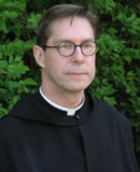
Perhaps the most potentially commendable moment in the recent history of the Roman Catholic Church is also one of the most controversial. The resignation of Pope Benedict XVI is being encircled by both praise and outrage; the latter response comes mainly from those who feel that it is inappropriate to step down from such a position or even those who feel, in some manner, abandoned.
However, the praise reaches out from individuals who knew these words to be true before they were spoken by Benedict this past Sunday, the 24th of February: “I can now continue to serve…with the same dedication and the same love which I have tried to do so until now, but in a way more suitable to my age and to my strength.”
Benedict’s resignation is one of honesty, courage, and sincerity to one’s faith; it is something that Catholics and non-Catholics alike can seek an example in. Simply being the pope does not make one exempt from the bodily degradation that we all will be subjected to as we grow older.
Clearly, Benedict is aware of this, and is not choosing to cling selfishly to such a beautiful position in spite of that. Granted, there are numerous theories afloat now about potential scandals being the underlying cause of the resignation, but for the sake of argumentation we shall set those aside and put some faith in Benedict as a human being.
As a non-Catholic, more particularly a non-Christian, perhaps my view of this scenario is biased in an extremely convoluted way. Personally, the idea of perceiving another person as an ultimate authority on my views is jarring to me; therefore, the concept of papal resignation holds very little ability to directly impact me. However, the presence of a pope does not insinuate that a Catholic is not to interpret the Bible and his or her faith individually; on the contrary, that presence offers a unity amongst thinkers and believers, but the absence of such a presence does not necessarily undermine the very faith of any given individual whatsoever.
While a pope may be revered and looked to for guidance, he is still another person with his own skillset. Should the young musician turn from music to painting as he ages for whatever reason, one does not chastise the musician for turning from the higher art of music to the lesser art of painting; that would be nonsensical. While perhaps individual opinions regarding which of the two, music or painting, is “better,” it is nonetheless true in every case to state that both areas are those pertaining to art, human expression, ideas, expressions of divinity, etc. So it is with faith. In the musician’s case, perhaps his age makes playing difficult, though he finds painting to be within his means as something he also enjoys and excels in.
As for a pope, resigning from the papacy is no different in terms of one’s faith: while perhaps a pope has more authority than you or I do (or is more “skillfully suited” to the papacy), it seems wrong to say that the pope out of necessity also must have more faith. This claim would insinuate that in order to be entirely faithful to God, one absolutely must aim for the papacy; it also insinuates that any person who does not intend to do so must not have substantial faith.
If the position one is in does not determine one’s amount of faith, why ought Benedict be judged so harshly for his decision to resign? He acknowledges what is now within his means to do: as he ages, perhaps his authoritative abilities wane, but his faith does not, and so he must find another way in which to express his religious devotion which is suitable to his person.
In making this decision he is respecting the Church in essentially stating that he is no longer physically capable of maintaining his position and thus someone more suitable should step in; he also is respecting himself, his own personal relationship with his faith and God. Any given person’s skillsets are what garner individuality and create a unique relationship between the person and his or her faith, whatever that may be.
Personally, I believe that there is merit, goodness, and truth to be seen in any religious tradition, and I see the differing religions as, in a way, an execution of skillful means and what is most applicable to each individual. That is not to say that I am correct, but certainly I would argue that it is worth considering that perhaps one’s relationship with God, Ultimate Reality, the Cosmos, etc. can be individually carried out in virtue of a person’s own abilities and skills, portraying the importance of the individual’s correlation to faith on a whole—something that Pope Benedict XVI himself, I believe, masterfully has shown the world.


